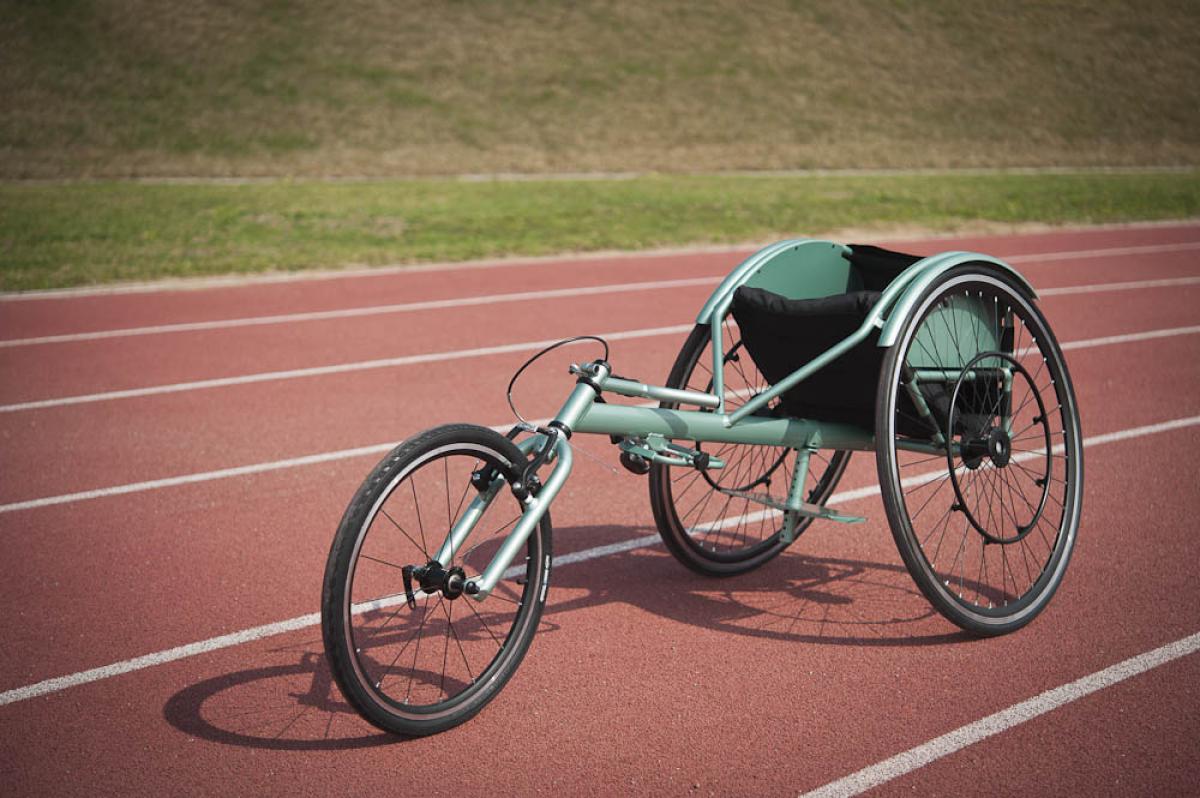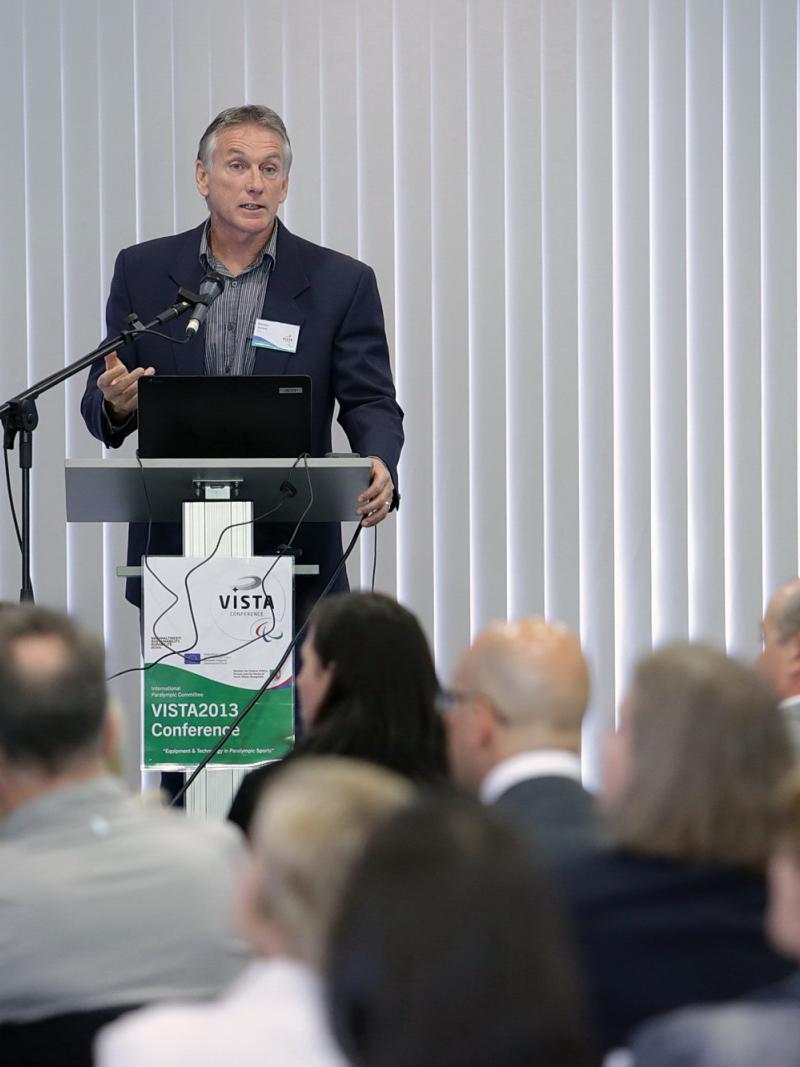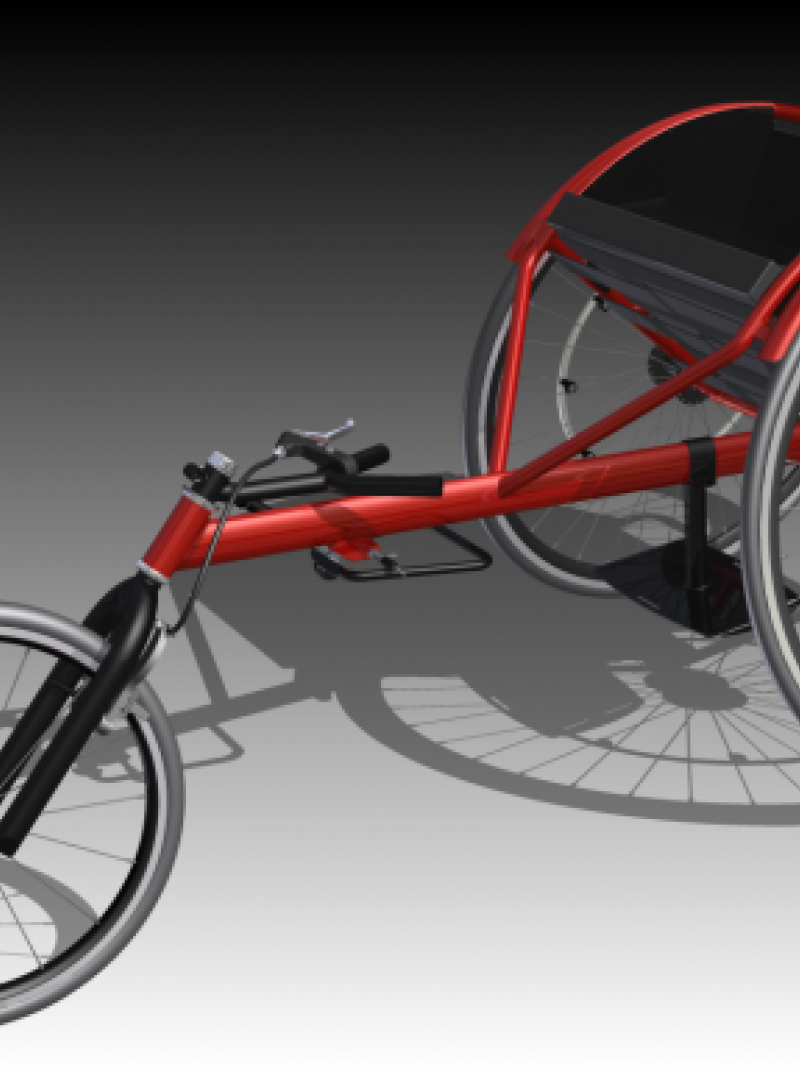Low-cost vs. high-tech equipment takes centre stage at VISTA2013
Motivation UK’s Chris Rushman, and Simone Oehler, the head of the testing department at IPC Worldwide Partner Ottobock, presented at the second day of the conference. 03 May 2013
The Motivation racing wheelchair was tested out in Tunisia
“For sports programmes to work in low-income countries, you need products that are affordable and suitable, but you also need the athletes, the coaches and the support."
The two keynote presentations at the International Paralympic Committee’s (IPC) VISTA2013 conference in Bonn, Germany on Friday (3 May), touched on opposing topics: equipment in low-income countries and high-tech applications in developed nations.
The first address was given by Motivation UK’s Chris Rushman, while the second was given by Simone Oehler, the head of the testing department at IPC Worldwide Partner Ottobock.
In his keynote, Rushman explained how Motivation UK’s challenge is to produce the highest standard of wheelchairs possible that can still be used in the harshest environments in developing countries.
Motivation UK has already put forth more than 4,000 low-cost products across 50 countries, including a racing chair they worked to develop together with the IPC prior to the London 2012 Paralympic Games.
“For sports programmes to work in low-income countries, you need products that are affordable and suitable, but you also need the athletes, the coaches and the support,” Rushman said.
Rushman said now that Motivation UK has grown worldwide, it’s influenced other producers to put forth their own products as well.
“I think we really brought some healthy competition into the marketplace,” Rushman said.
Meanwhile, Oehler spoke more about the equipment for athletes who are already established in more highly developed countries.
She discussed the process engineers take, working closely with athletes to cater their prosthetics to their individual needs.
The athlete’s voice matters just as much in the process as the engineer’s, she revealed.
“The best engineer can’t even come up with something good if they don’t have feedback from the athlete,” Oehler explained.
In the conference’s smaller sessions, topics discussed on the second full day of VISTA2013 ranged from athlete health and wheeled mobility to classification concepts and Paralympic legacy.
VISTA2013 will conclude on Saturday (4 May), with a keynote speech about the balance between access, competitive edge and the philosophy of sport. It will be given by Ivo van Hilvoorde, who is an assistant professor at the Faculty of Human Movement Sciences at the Vrije Universiteit Amsterdam.






